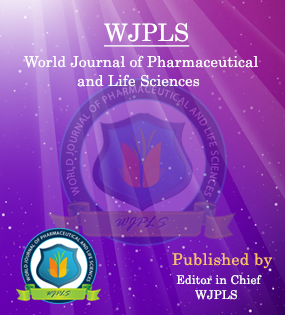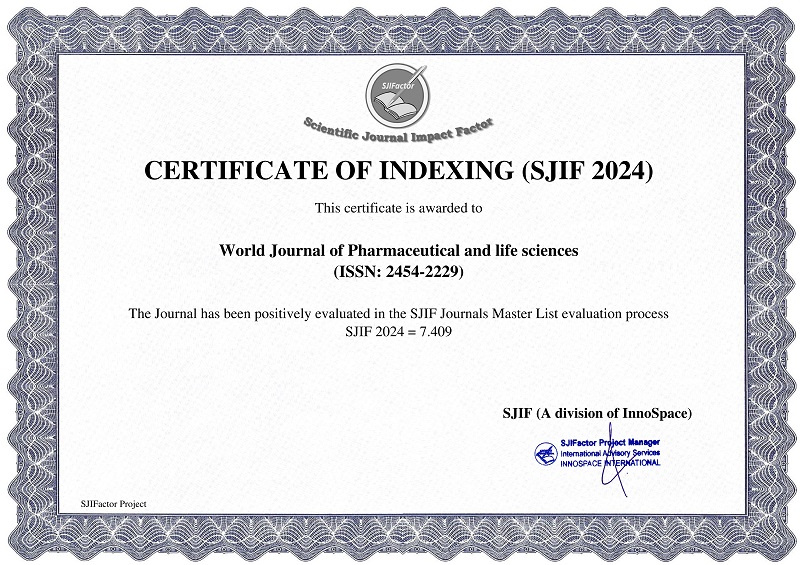Abstract
HISTOPATHOLOGICAL EFFECTS OF CANNABIS ON THE LIVER AND KIDNEYS OF WINSTER RATS
Nkporbu A. K.*, Georgewill O. A.
ABSTRACT
Background: Some zenobiotics can cause direct structural affectation and/or minor or major histological changes to tissues and organs of the body. The central nervous system (CNS) physiological effects of cannabis have been extensively studied. However, very little is known about the histopathological changes in the brain both in short time and chronic cannabis users. In this study, toxic effects of cannabis on the kidneys of rat were investigated. Aim. The study aimed to investigate any dose dependent toxic effects of cannabis on the liver and kidneys of rats. Methodology: Thirty (30) rats with average weights 150-200g were used for the study. The animals were divided into groups A, B, C and D. They were all acclimatized for 5 days and fed on the same feed. Animals in groups B to D were administered with different doses of cannabis—with Group D— the highest dose—4Omg/kg/day, Group C—20mg/kg/day and Group B—l0mg/kg/day. Group A was used as the control. The cannabis substance was administered to the rats daily for 28 days in the laboratory in addition to their usual daily feeds and water. The animals each from groups A, B, C and D were sacrificed on days 7, 14, 21, and 28. The liver and kidneys were excised after dissecting the rats and tissues were collected for histology. Results: The test group rats had increased appetite with subsequent weight gain. Group D from 170 ± 10g in the first week to 200 ± 20g in the fourth week, Group C from 170± l0g to 200± l0g, Group B from 160± 5g to 180± 5g while the Control Group 150 ± 5g to 220 ± 20g. Various dose dependent histological changes were noted in the organs studied. In the liver changes range from diffuse inflammation, portal triaditis to various degrees of fatty changes which became marked with prolonged administration. In the kidney, there was marked inflammation with collapsed glomeruli, widening of Bowman spaces and edematous tissues. Conclussion: This study has revealed that, in addition to issues of intoxication, cannabis can also produce histopathological changes in the liver and kidneys. It is therefore recommended that in addition to advice based on intoxication as reasons for abstinences, p0ssible liver and kidney damages- hepathotoxicity, nephrotoxicity, and nephropathies, should also be given as reasons for abstinence and furthermore treatment of cannabis abuse should also involve possible investigations and treatment of liver and kidney damages.
[Full Text Article] [Download Certificate]WJPLS CITATION 
| All | Since 2020 | |
| Citation | 590 | 424 |
| h-index | 12 | 10 |
| i10-index | 17 | 14 |
INDEXING
NEWS & UPDATION
BEST ARTICLE AWARDS
World Journal of Pharmaceutical and life sciences is giving Best Article Award in every Issue for Best Article and Issue Certificate of Appreciation to the Authors to promote research activity of scholar.
Best Article of current issue
Download Article : Click here





